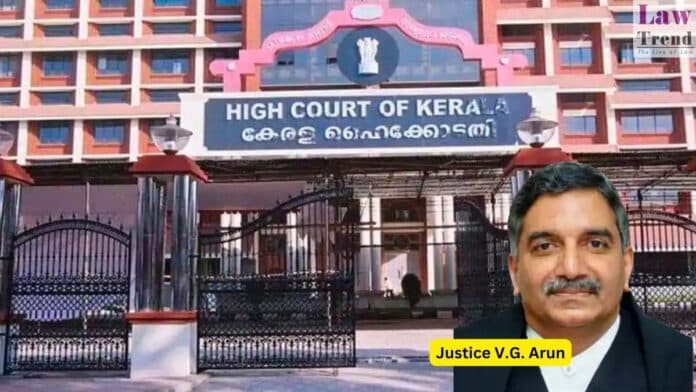Kerala High Court judge Justice V.G. Arun has made a compelling case for secular and rational upbringing, stating that children raised without religious or caste identities embody the hope for a more enlightened and questioning society.
Speaking at a commemorative event organised by the Kerala Yukthivadi Sangam, Justice Arun lauded the efforts of parents who consciously choose not to impose religious or caste affiliations on their children. “These children are the promise of tomorrow. These are the children who will tomorrow ask the right questions without fear, even in the face of opposition from society,” he remarked, as quoted by Bar and Bench.
The event was held in honour of noted rationalist writer Pavanan and to felicitate author Vaisakhan, both known for championing rational thought and secular values. Justice Arun paid rich tributes to both figures, noting their rejection of caste-based surnames in favour of pen names as a symbol of their commitment to equality and rationalism.
Reflecting on his personal connection, Justice Arun recalled his father, the late T.K.G. Nair—an author, politician, and activist—who was influenced by Pavanan and wrote under the pseudonym “Anilan.” Drawing parallels to present-day discourse, the judge criticized the toxic nature of social media debates that often lack civility and reasoned engagement.
“I preside over cases seeking to quash criminal proceedings based on social media posts. It is distressing to read some of these posts—they pollute the Malayalam language. I often wonder how a Malayalee can stoop to such levels. This is what happens when society lacks rational voices like Pavanan and Vaisakhan,” he observed.
Justice Arun’s views are consistent with his judicial philosophy. In a 2022 landmark ruling, he upheld the right of individuals to identify as non-religious in official documents. The verdict came in response to a petition by students seeking college admissions through a non-religious category, after having passed their Class XII exams.
By celebrating secular parenting and defending freedom from religious identity in public life, Justice Arun has once again sparked a vital conversation about the future direction of Indian society—one grounded in reason, equality, and human dignity.




